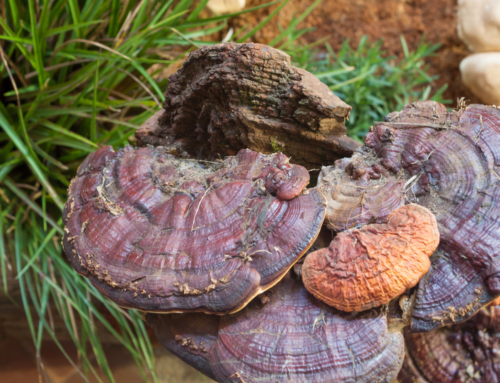Are you tired of counting sheep while the rest of the world sleeps? If so, you’re not alone. Many of us struggle to achieve restful sleep, and oftentimes our lifestyle habits are to blame. From screen time to late-night caffeine fixes, a myriad of factors can disrupt our sleep patterns and leave us feeling exhausted and frustrated the next day. That’s why we’re here to shed some light on factors that might be sabotaging your sleep and offer some practical tips to help you reclaim your nights.
Breaking down habits that disrupt your Zzz’s
The trouble with staying up late is that sleep often gets cut short during the morning hours, just when the most important REM or dream sleep typically happens. Not getting enough REM sleep can affect memory, mood regulation, stress management and healthy brain development. So, what’s really keeping you up at night? Let’s take a closer look at some factors that might be getting in the way of a good night’s rest.
Alcohol and caffeine consumption
For many of us, a nightcap or an afternoon pick-me-up might seem like the perfect way to unwind after a long day. But these seemingly innocent indulgences can wreak havoc on our sleep patterns. Caffeine, a stimulant found naturally in coffee, can linger in our system for hours blocking the effects of adenosine, a neurotransmitter that promotes sleep. As a result, even a seemingly harmless cup of coffee in the late afternoon can lead to difficulty falling asleep or fragmented sleep throughout the night. Research shows that up to six hours after drinking a caffeinated beverage, half of the caffeine consumed is still present in the body. As a general rule of thumb, it’s recommended to cut off caffeine intake around 2 or 3 PM if your bedtime is 9pm.
Similarly, while alcohol might initially induce feelings of relaxation and drowsiness, it ultimately disrupts the sleep cycle by interfering with the brain’s ability to enter the deeper stages of sleep. This results in us waking up more frequently during the night, decreased REM sleep, and a general feeling of unrest upon waking. For a better night’s rest, allow at least three hours between your last drink and the time you go to bed, while drinking water to keep you hydrated as well as to help flush the alcohol out. You can even consider swapping out your evening cocktail for a mocktail – a delightful alternative that can help set the stage for better sleep.
Large meals before bed
There’s something undeniably comforting about indulging in a hearty meal before bedtime. And the truth is, we can’t always control when hunger strikes. However, large meals, especially those rich in fats and heavy proteins, can trigger indigestion and acid reflux, making it uncomfortable to lie down and fall asleep.
The body’s digestive system works overtime to process the influx of food, diverting energy away from the relaxation and restoration processes necessary for quality sleep. As a result, you may experience disrupted sleep patterns, including frequently waking up throughout the night. To promote a more restful slumber, opt for lighter, well-balanced meals earlier in the evening (2-3 hours before bed), allowing ample time for digestion before bedtime. Consider incorporating foods that are rich in tryptophan and magnesium (essential nutrients which help the body regulate sleep) into your evening meals. By prioritizing mindful eating habits, you can nourish your body without sacrificing the quality of your sleep.
Blue light exposure
In today’s screen-centric world, we’re all guilty of those late-night social media scrolls or binge-watching our favourite shows before bed. But did you know that those glowing screens could be sabotaging your sleep? Blue light, emitted by smartphones, computers, and televisions, has been shown to interfere with the body’s natural sleep-wake cycle by suppressing the production of melatonin, the hormone responsible for regulating sleep. Exposure to blue light in the evening can trick our brains into thinking it’s still daytime, disrupting our internal clock and making it harder to wind down for sleep.
Dialing back on screen time before bed or dimming the brightness on your devices can minimize the disruptive effects of blue light on sleep. Additionally, exposure to natural sunlight during the day helps regulate your body’s internal clock and can make you more resilient to the effects of blue light in the evening. So, when possible, try spending time outdoors or opening your blinds to let light in during daylight hours.
Lack of physical activity
Regular exercise not only tones muscles and boosts energy levels but also plays a crucial role in enhancing the quality of sleep. When we exercise, our body temperature rises, and post-exercise, it gradually cools down, signalling to our brain that it’s time to rest. Moreover, exercise releases endorphins, the body’s natural feel-good chemicals, which can help reduce stress and anxiety levels, common culprits behind sleep disturbances. Additionally, consistent exercise has been shown to promote deeper, more restorative sleep by increasing the time spent in the restorative stages of sleep, such as REM and slow-wave sleep.
However, timing is key. Exercising too close to bedtime may actually have the opposite effect, stimulating the body and making it harder to fall asleep. So, whether it’s a brisk walk in the morning, a midday yoga session, or an evening jog, finding a physical activity that suits your schedule and preferences can significantly enhance the quantity and quality of your sleep. This will leave you feeling refreshed and energized for the day ahead.
Napping during the daytime
The cherished daytime nap —a snooze many of us eagerly anticipate, especially when our energy dips and eyelids grow heavy. While a short power nap of 20-25 minutes can help to lift our spirits, sharpen our focus, and rejuvenate our weary bodies, it’s important to understand that napping isn’t a cure-all for chronic sleep struggles. In fact, for those of us grappling with nighttime sleep disturbances, daytime naps might inadvertently exacerbate the problem. That afternoon catnap can actually decrease your homeostatic sleep drive, throwing your sleep-wake cycle out of whack. This makes it even harder to drift off when bedtime arrives.
So, how can we make the most of our daytime dozing without sacrificing our nighttime rest? It’s all about striking the right balance and integrating naps into a healthy sleep routine. In essence, healthy sleep routine first, daytime naps second. By prioritizing consistent bedtime habits and creating a calming pre-sleep ritual, we lay the groundwork for more restful slumber – both at night and during the daytime.
Finding support for better sleep
Whether you’re managing screen time or incorporating regular exercise into our routines, every small change can make a big difference in your nightly rest. However, finding support and guidance along the way can make all the difference in your journey towards better sleep. That’s why we invite you to join our Sleep Support Group— a cozy corner of CanPrev Community, dedicated to turning sleepless nights into sweet dreams. We get it—sleep struggles can be a real nightmare, but together we can turn bedtime into the best time!
Sources:
Caffeine Effects on Sleep Taken 0, 3, or 6 Hours before Going to Bed
Sleep Basics
Foods that can improve sleep







Leave A Comment